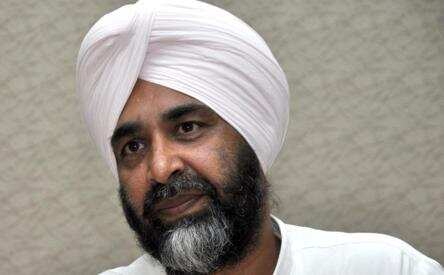Chandigarh, October 12: Punjab Finance Minister Manpreet Singh Badal on Monday emphasized the need to establish a mechanism in the right earnest to adjudicate any dispute between the Government of India and one or more states or between GoI and any state or states on one side and one or more states on the other side, arising out the recommendations of the GST Council or implementation of thereof.
Notably, on the aspect of activating dispute settlement mechanism- which could allow the concerned states to agitate their issue before an independent body there is silence again. Manpreet Badal mentioned that a view was earlier expressed that there is no such provision and it was ruled out by the Parliamentary Standing Committee set up on GST Bill. Allying apprehensions, Manpreet Badal said that it was not the correct position as Standing Committee had clearly made the aforesaid recommendation, which is now incorporated in our Constitution as Article 279 A (11).
While intervening on GST compensation at 42nd meeting of the GST Council through Video Conferencing, Manpreet Badal said that the existing situation is squarely covered by the said clause though he wished that this issue could be resolved outside this mechanism. Without mincing any words, the Finance Minister further said, ‘‘We are thus close to setting up some dangerous precedents: Good bye to Constitution. Good bye to Compensation Law. Good bye to minutes of the Council meetings. Good bye to learned Attorney General’s (AG) opinion.’’
Apprising chairperson of the Council and Union Finance Minister Nirmala Sitharaman, Manpreet Badal said, ‘‘There is massive responsibility on our shareholders, yours in particular. We are close to causing irreparable damage to One-Nation-One-Tax concept that is the soul of the Law.’’ Badal said that it was with this understanding that he had suggested a Group of Ministers (GoM) on the subject and was sure that the Group would be able to look at the issues with calmness and in far greater spirit of accommodation of concern of all. The Finance Minister further stated it would also serve as decent proxy for a dispute settlement mechanism adding if the Group can be announced today it can give its report in next 48 hours. He hoped that Council would rise above immediacy and guide itself by law rather than expediency.
Badal empathetically said that Punjab had raised many pertinent questions both in writing as well as at the last session and he was still waiting to get the answer. Since there have been no answers he was inclined to believe that perhaps there are no answers and we want to go ahead without answers those questions.
Pointing out further, Manpreet Badal said that good and bad times come and go for citizens as well as nations and laws are primarily meant to ensure the correct course of conduct even when there are temptations to deviate from the chartered path. Manpreet Badal asserted, ‘‘As far Punjab is concerned, our issue is simple. Give us compensation as per Law. If a pragmatic change is necessary get the law amended.’’ He also mentioned that law and compensation has not gone under any material change since beginning and all material changes have now come through a set of circulars and executive instructions as on date they don’t have the force of even a council recommendation.
Divulging further, Manpreet Badal for the benefit of all outlined what is being changed is not provided in the law. Referring to the word ‘Compensation’ as defined in the law, he said that it is the difference between the projected revenue and actual revenue which has neither undergone any change thus compensation can’t be arbitrarily split in two parts and there is no legal basis to apply 7% growth which was earlier 10%.
He further revealed that compensation has come from Fund as defined in Section 10. Any amount that comes outside of that is not ‘Compensation’ thus unless Central Government borrows and credit it to Compensation Fund it is not compensation. Manpreet Badal further underscored that Section 7 requires that compensation must be paid within transition period i.e. five years, which is even clarified in the opinion of AG, who has further opined that unless all states agree compensation can’t be delayed beyond five years. Thus there is no question of majority voting. According to AG all states must agree, which is clearly not the case on the issue.
Discussions
Discussions
